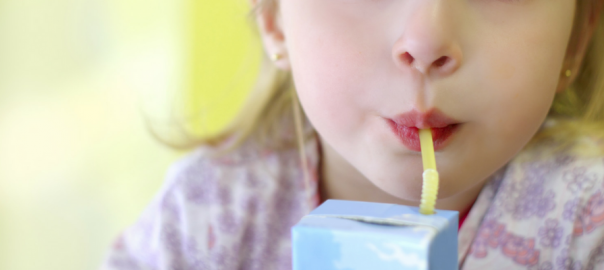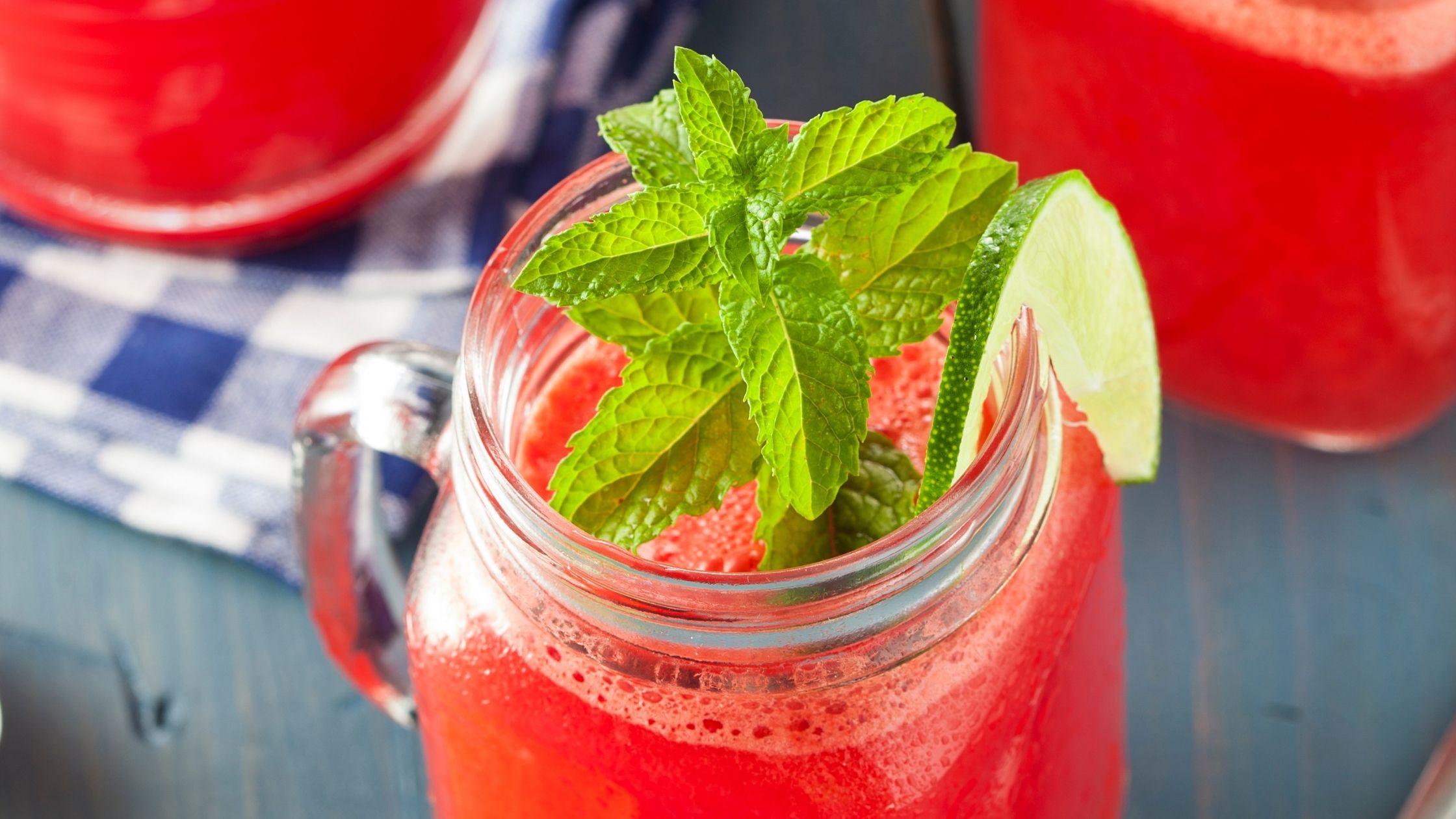Do your little ones drink juice often? If so, you might want to reconsider.
Especially if there's added sugar, flavors and dyes. But even if it's 100% real fruit juice.
While juice may come from fruit, most commercial brands are processed under extreme conditions and striped of all nutritional benefits. Including vitamin C because it is extremely sensitive to heat and light. Thus, unless it's freshly squeezed, the vitamin C is most likely partially or even fully degraded by the time it hits your lips.
Essentially, all you're left with is liquid sugar. And a lot of it!
The American Heart Association recommends young children consume between 12 to 16 grams of added sugar per day. Which equates to 3 to 4 teaspoons.
Do you know how much sugar one juice box contains?
It varies by brand, but generally they contain between 10 and 20 grams of sugar (2.5 to 5 teaspoons). That means just one juice box could put your child over the recommended limit of added sugar.
Now think about how much juice your child drinks a day.
Maybe 2 to 3 cups per day? If so, this adds 5 to 10 teaspoons of sugar daily from juice alone.
Potential Risks of Too Much Juice
According to the United States Department of Agriculture, sugar sweetened beverages (i.e., fruit juice, soda, sport drinks) account for 36% of the added sugar Americans consume.
Experimental studies show sugar sweetened beverages (SSBs) lead to weight gain because they contribute a significant amount of calories. And people don't eat less to compensate because SSBs aren't satiating or provide lasting energy.
There's no fiber, fat or protein present to slow the progression from liquid sugar to blood sugar. Which can lead to inflammation, insulin resistance and increase the risk of type 2 diabetes and heart disease.
High fructose consumption (a naturally occurring sugar in fruit) has also been shown to burden the liver and increase belly fat.
Thus, now is a great time to break your family's juice habit (or never start one).
Healthier Ways to Hydrate Your Family
The best source of daily hydration will always be water. And filtered tap water is ideal.
But if transitioning to plain water overnight is a hard sell, you can start by mixing juice with water. And gradually start adding more water.
To keep things interesting, here are a few other delicious options:
- Fruit infused water: They're easy and fun to make. My family's favorite combinations are strawberry lemon and watermelon mint. Simply add fruit and herbs to water and let sit in the fridge for at least 4 hours.
- Herbal tea: my son loves peppermint and ginger
- Sparkling water
- Coconut water
When purchasing teas, flavored sparkling water and coconut water, don't forget to check the ingredients for added sugar or other negative ingredients.
To stay hydrated on the road and avoid the temptation to just buy a juice, bring your own containers with healthy beverage choices with you. Skip the plastic bottles in order to avoid issues with BPA (to learn more watch my interview with Lara Adler, The Environmental Toxins Nerd). Glass or stainless steel containers are your best bet. My personal favorite is Glasstic, a shatterproof plastic cylinder around a glass center cylinder. Easy to take apart and wash in the dishwasher, the company claims these are the last water bottle you'll ever need. I bought three over a year ago and they're still going strong. Get 10% off with this link.
To Sum It Up...
Parents ask me all the time how to create a healthier lifestyle for their family. Cutting out juice is the perfect place to start. It's a simple change. But one that will significantly reduce the amount of sugar your little ones consume as well as foster healthier habits for years to come.
[expand title="Sources"]
"Abundance of fructose not good for the liver, heart." Harvard Health Publications (web log), September 2011. Accessed January 2017.
http://www.health.harvard.edu/heart-health/abundance-of-fructose-not-good-for-the-liver-heart.
Hu, Frank B., and Vasanti S. Malik. "Sugar-sweetened beverages and risk of obesity and type 2 diabetes: Epidemiologic evidence." Physiology & Behavior 100, no. 1 (2010): 47-54. doi:10.1016/j.physbeh.2010.01.036.
Johnston, Carol S., and D.l Bowling. "Stability of Ascorbic Acid in Commercially Available Orange Juices." Journal of the American Dietetic Association 102, no. 4 (2002): 525-29. doi:10.1016/s0002-8223(02)90119-7.
Malik, Vasanti S., and Frank B. Hu. "Sweeteners and Risk of Obesity and Type 2 Diabetes: The Role of Sugar-Sweetened Beverages." Current Diabetes Reports 12, no. 2 (2012): 195-203. doi:10.1007/s11892-012-0259-6.
"Sugar-Sweetened Beverages and Weight Gain in 2- to 5-Year-Old Children." Pediatrics 132, no. 3 (2013). doi:10.1542/peds.2013-0570d.
[/expand]



